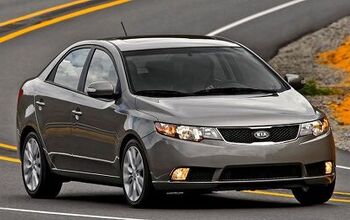Mercedes Recalling Over 1M Vehicles for Airbag Issue

More than one-million Mercedes-Benz vehicles are being recalled worldwide due to a possible issue with an airbag.
According to parent company Daimler AG, the recall involves 495,000 vehicles in the U.S., 400,000 in Britain, 76,000 in Canada, and a few hundred thousand in Germany. The issue involves the inadvertent deployment of the driver-side front airbag, due to an electrostatic discharge, a broken clock spring, and insufficient grounding of steering components. To resolve the issue, the German automaker’s dealers will add new grounding to the steering components.
SEE ALSO: Mercedes-Benz CLS Spied Nearly Free of Camouflage
No deaths related to the issue have been reported, but Autoblog reports a Mercedes-Benz spokeswoman in the U.S. says there had been “a handful of instances where drivers suffered minor abrasions or bruises.”
Affected models include 2012-2018 A-, B-, C-, and E-Class models, as well as the CLA, GLA, and GLC. Mercedes will be notifying owners and informing them of the next steps, which will include a free fix.
The recall is not related to the massive Takata airbag recall.
Discuss this story on our Mercedes-Benz Forum

Jason Siu began his career in automotive journalism in 2003 with Modified Magazine, a property previously held by VerticalScope. As the West Coast Editor, he played a pivotal role while also extending his expertise to Modified Luxury & Exotics and Modified Mustangs. Beyond his editorial work, Jason authored two notable Cartech books. His tenure at AutoGuide.com saw him immersed in the daily news cycle, yet his passion for hands-on evaluation led him to focus on testing and product reviews, offering well-rounded recommendations to AutoGuide readers. Currently, as the Content Director for VerticalScope, Jason spearheads the content strategy for an array of online publications, a role that has him at the helm of ensuring quality and consistency across the board.
More by Jason Siu































Comments
Join the conversation